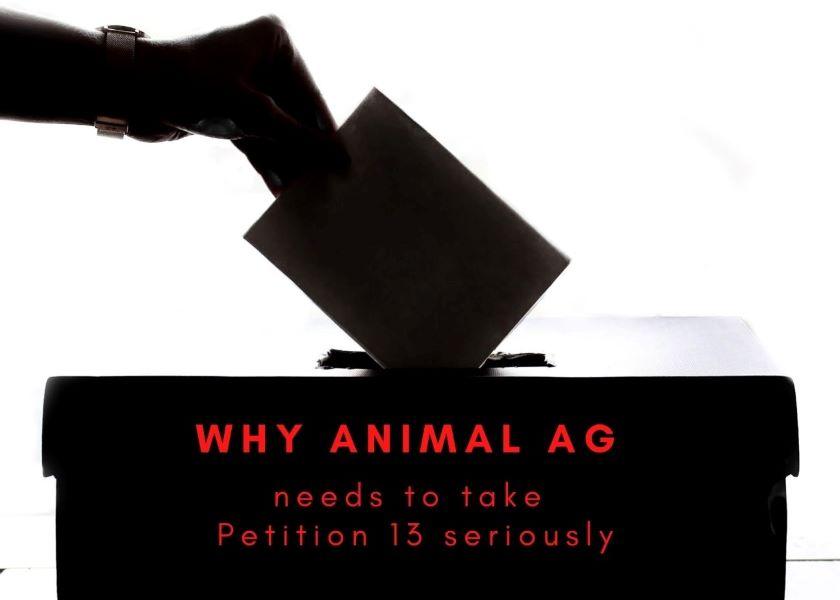Why Animal Agriculture Needs to Take Petition 13 Seriously

Is Petition 13 out of Oregon as ridiculous as it sounds? AgriTalk host Chip Flory asked Hannah Thompson-Weeman, vice president for strategic engagement at the Animal Agriculture Alliance.
“Petition 13 would make things like any injury to an animal arising from a rodeo a crime, it would make livestock have to die of natural causes before they can be processed, and perhaps most ridiculously, it would redefine a certain animal health and animal husbandry practices as sexual abuse,” Thompson-Weeman said.
Fortunately, the PAUSE Act, a similar ballot initiative like Petition 13 was defeated in Colorado, she explained. The Colorado Supreme Court ruled that it was too broad and they were trying to do too much in one ballot initiative.
It’s Not Just About Oregon
“We know very well in animal agriculture that people don't always understand what we do,” Thompson-Weeman said. “It's easy to boil something down to very short, very outlandish language where somebody thinks they're voting for better animal welfare.”
Both the Colorado and Oregon initiatives were put forth by self-proclaimed animal rights activists. Although the Colorado initiative has been defeated, Petition 13 is moving forward and will go on the ballot in November 2022 if they proceed through the signature gathering process and other checkpoints.
“It's important to understand that even if you don't live in Oregon, this could be bad news for you,” Thompson-Weeman emphasized.
Initiatives like this one would set a precedent that could be used to pass similar legislation in other states.
“Everyone needs to be mindful of what's going on even if you don't live in a certain state because that's what it's all about...getting this patchwork of regulations passed in different states that’s ultimately impossible for animal agriculture to abide by,” she said.
Prop 12 Adds Challenges, No Benefits
Earlier this week, the Supreme Court denied a petition to review California’s Proposition 12, which requires the sale of meat products in California to conform with the state’s animal housing standards.
“Prop 12 was passed by ballot initiative just like the two other examples we talked about. The kicker with Prop 12 is that it does not just apply to products produced in California, it applies to items being sold in California, regardless of where they were produced,” Thompson-Weeman said.
This is a major challenge as California consumes about 15% of the U.S. pork supply and produces less than 1%.
“That's pretty significant that a state where less than 1% of the production exists is able to pass a regulation that's going to impact producers across the country,” she added. “People like animal agriculture, they want to eat animal protein. The vast majority of people enjoy putting meat, poultry, dairy and eggs on their plates.”
She said it’s not the general consumer who is looking for these changes, but rather activist groups pushing for it, getting it on the ballot, and convincing people they were voting for enhanced animal welfare.
“Even the California Department of Food and Agriculture in the proposed rules has noted this does not actually have any benefits. These regulations are not science-based, and they don't improve animal welfare. They don't improve food safety. They don't have benefits for California consumers,” Thompson-Weeman said.
But it will raise costs and make pork production very challenging for producers.
“No benefits for California consumers and more expense and a loss of efficiency for hog producers across the country. It doesn't make any sense,” Flory said.
Read More:
PAUSE Act A Radical Threat To Ranching
Oregon Dairy Farmers Oppose Initiative Petition 13
Supreme Court Rejects Meat Institute’s Petition to Review Proposition 12
Pork Industry Braces for Catastrophic Costs to Implement Proposition 12
Proposition 12 Pressures Aren’t Going Away
On-Demand Webinar: Proposition 12: Where Do We Go From Here?







